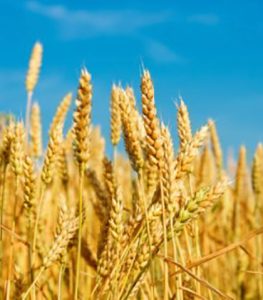Ukraine conflict could spark global food crisis
The war in Ukraine could set off a devastating food crisis across some of the most disadvantaged parts of the globe, according to a raft of new reports.
Separate reports from the United Nations, the Norwegian Refugee Council, the International Food Policy Research Institute (IFPRI) and the European Union say that higher prices in nations already struggling with hunger crises will result from Russia’s invasion of Ukraine.
 With food prices already at their highest levels in a decade and supply chains already stressed because of the COVID-19 pandemic, the looming food crisis could be catastrophic, the reports say.
With food prices already at their highest levels in a decade and supply chains already stressed because of the COVID-19 pandemic, the looming food crisis could be catastrophic, the reports say.
Ukraine is known as ‘the breadbasket of Europe’ because it contains a third of the world’s most fertile soil. The country is a world leader in the production of sunflower oil, barley, and maize, and with Russia, provides a third of global wheat supplies.
As wells as the unfolding humanitarian crisis for Ukrainians, the wider fallout – from regional port closures, large-scale displacement within and out of Ukraine, and crippling economic sanctions on Russia – could be far-reaching and devastating, especially for poor consumers in countries dependent on food imports, the reports say.
The Black Sea region, which includes Ukraine, “is critical for the food security in the Mediterranean area but also in the Middle East and North Africa, western Asia, and up to Pakistan,” a report by IFPRI said.
It says that preventing the Ukraine conflict from setting off a full-blown global food crisis will mean providing more funds into food assistance in the countries likely to be hardest hit.
The UN’s special rapporteur on extreme poverty and human rights Olivier De Schutter said that: “Governments need to do everything in their power to ensure food security for Ukrainian citizens, and step up social protections to insulate vulnerable people from rising food prices”.
He said the Ukraine crisis meant a need for a re-think of current food production and consumption models and resilience to these shocks.
“Countries ultimately need to reduce their dependence on imports of just a few key agricultural commodities, by diversifying their own local food production and food supply chains,” he said.
The reports say the impact of the Ukraine conflict will be felt across a range of places.
Rising food prices mean poor people who generally spend a considerable percentage of their income on food will now find themselves even more stretched.
Also, rising food – as well as other economic, social, and political frustrations – could help fuel social unrest, as was the case across the Arab world in 2011.
But perhaps most problematic is that war-stricken areas and countries, like Yemen, eastern Africa, Mali, and Myanmar, could see disastrous consequences because of the existing combination of violence and hunger, and little or no chance of humanitarian help.
There could also be longer-term impacts on agricultural productivity due to a lack of fertilisers because Russia is one of the world’s largest suppliers of fertilisers and related raw materials.
The reports say parts of the Middle East and North Africa will be hit hard by food shortages because drought-affected countries in the region were expected to import record amounts of wheat this year.
“For some countries in the Middle East region, this conflict could drive millions of people into food poverty,” the UN says.
Hunger levels in the Middle East and North Africa have already more than doubled since two decades ago, according to the UN’s latest regional overview.
In 2020, there were 69 million hungry people in the region, up more than 90 per cent since 2000. The latest figure is “close to the peak of 2011 when the region suffered from a major shock due to uprisings”, the report added.
Countries such as Iraq, which has one of the world’s largest government-run food programmes, and Yemen, which imports 90 per cent of its food needs – and half of its wheat from Ukraine and Russia – face higher costs and worsening food insecurity.
Lebanon relies on Ukraine for up to 60 percent of its wheat and has only about a month’s worth of reserves.
Latin America has seen hunger rise faster than anywhere else with the La Niña weather phenomenon drastically reducing soybean harvests. Meanwhile, droughts have slashed wheat harvests in Iraq, Syria, and other parts of the Middle East.












